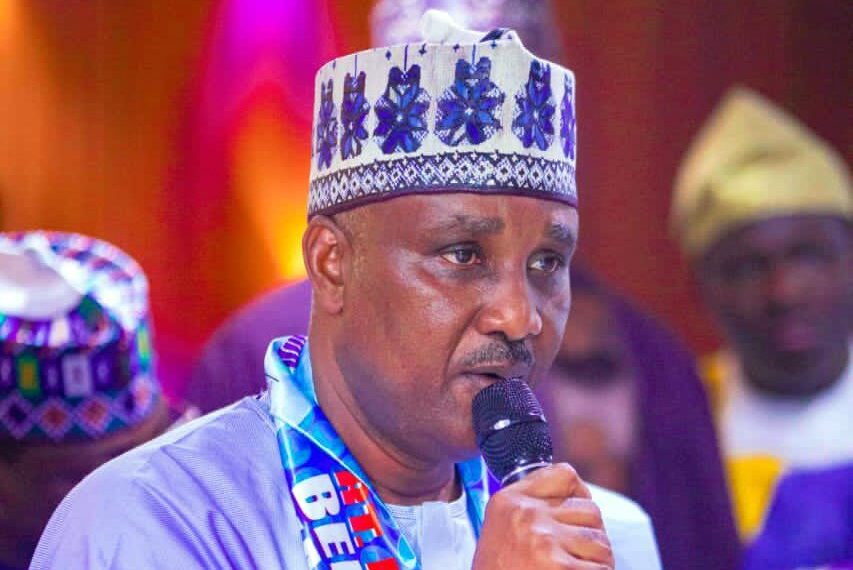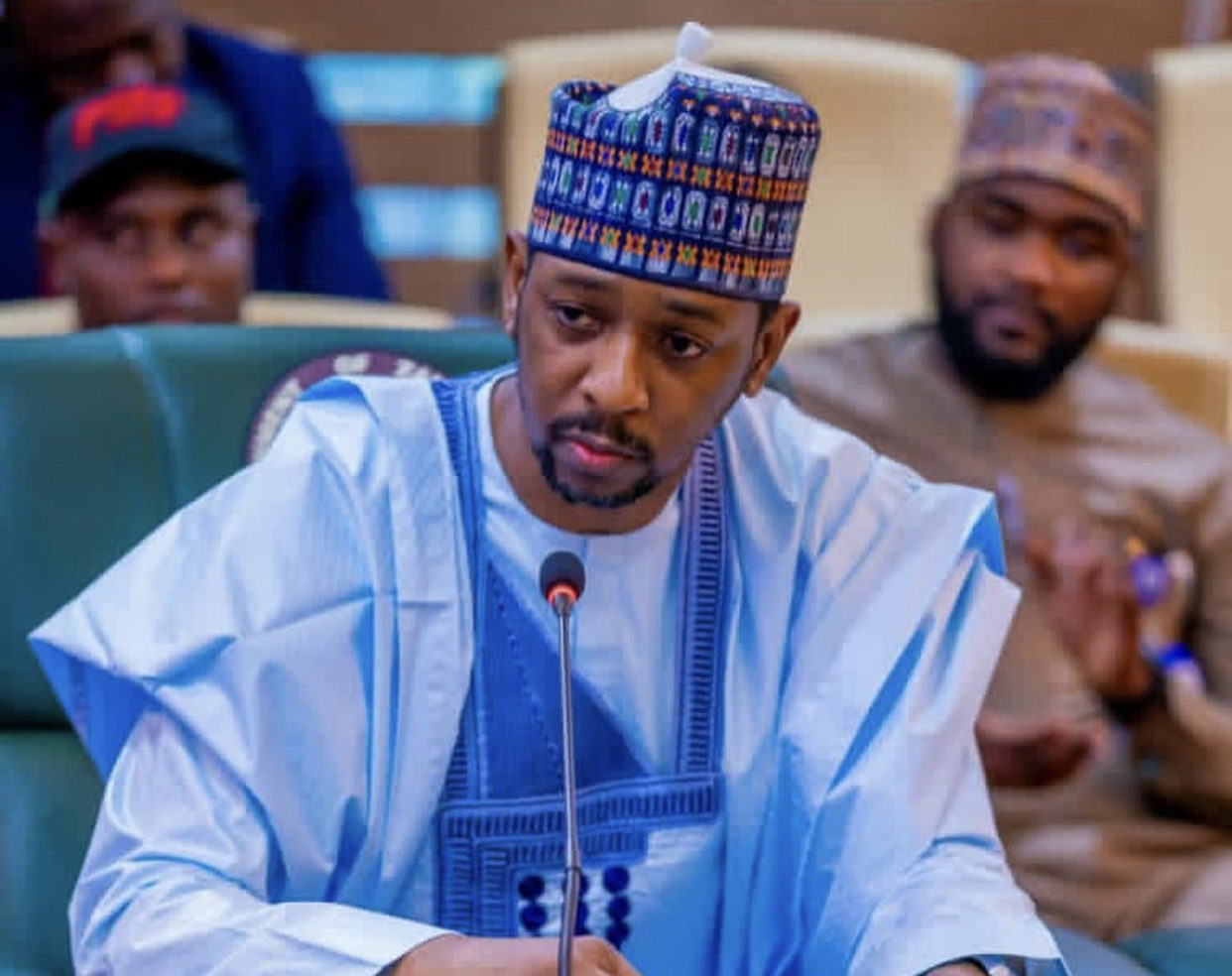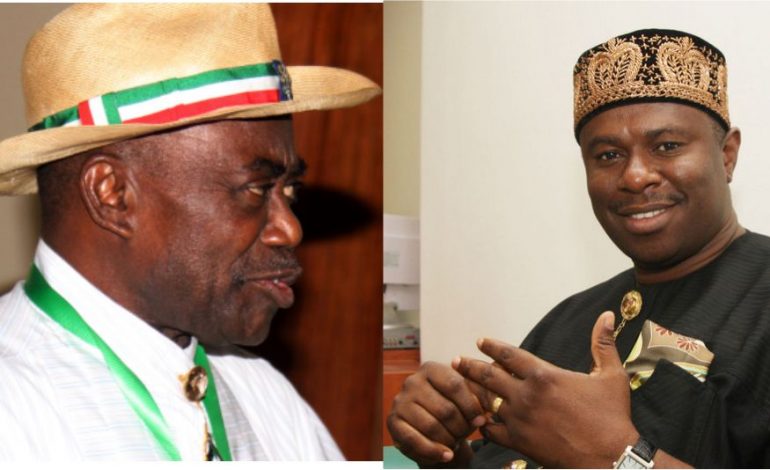Speaker inaugurates Constitution review committee, says priority ‘ll be on women, others

…as Kalu says, Nigerian voices must be heard
By Tom Okpe
Speaker of the House of Representatives Rep Tajudeen Abbas Tajudeen, has inaugurated the House Committee, charged with the responsibility to ‘Review the Constitution of the Federal Republic of Nigeria,’ 1999, (As Altered).
At the inauguration ceremony were top Government functionaries and representatives of three arms of Government, Legislature Executive and the Judiciary, as well as those of the Federal, State and the Local Governments.
Others were traditional rulers, spiritual leaders, representatives of ethnic nationalities, professional bodies, women groups, persons with disabilities, technical and development partners, both local and international, as well as civil society and non-governmental organisations.
Abbas said: “Today marks yet, another significant moment in our democratic journey towards a more ‘perfect union’. The inauguration of the Committee is not just a ritual, but a reflection of our collective resolve to ensure that the foundational document of our democracy evolves to meet the aspirations of all Nigerians.
“Our population in 1999 was about 120 million. However, by 2023, we had exceeded 220 million people. These rapid changes underscore the need to continuously transform the Constitution into a living and transformative document.”
While the Deputy Speaker, Rep Benjamin Okezie Kalu is the Chairman of the Committee, and the House Majority Leader, Rep Julius Ihonvbere, serves as the Deputy Chairman, Speaker Abbas noted that to ensure greater inclusion, the Committee would also have six additional women, one from each of the six geo-political zones.
READ ALSO: Excitement as Celestine Umeri leads over 4000.
He added that the House’s zonal caucus leaders had been co-opted in an advisory capacity, to advise the Committee on issues relating to respective zones.
“The Committee’s Secretariat will also include a representative of people living with disabilities to ensure that their concerns are properly accommodated.
“The mandate of the Committee is to receive and consider proposals for alteration of the 1999 Constitution, (as amended); create a forum for stakeholders and the public to make inputs into the review process and collaborate with the Senate and the State Houses of Assembly as required by law,” he added.
The Speaker, who described the alteration of the 1999 Constitution as an ‘important national assignment.’
Recall that at its inauguration on June 13, 2023, the 10th House expressed its commitment to continuous law reform.
Specifically, he noted that Legislative Agenda of the House identified streamlining and improving the constitutional reform process as a cardinal objective.
“In this regard, the House is already working on a ‘Constitution Alteration Procedure Bill to provide a framework’ and a timeline for the passage of Constitution alteration bills by the National Assembly and adoption by State Houses of Assembly.
“The early commencement of constitution review activities by the 10th House is yet another step, towards actualising our Agenda,” he added.
Speaker Abbas also said it was essential to acknowledge the journey Nigeria has embarked upon since the return to democracy in 1999.
He also said the country has witnessed significant milestones and challenges alike.
“Through each phase, our democracy has been tested and is still being challenged. Yet, even after 25 years, it stands resilient, reinforced by our collective belief in the principles of freedom, equality, and justice for all,” he said.
The Speaker added that the 1999 Constitution, as the supreme law of the land, has been the grundnorm of our democracy for over two decades.
“Yet, like any great edifice, it requires periodic assessment and renovation to ensure, it meets changing needs and aspirations of our people,” he stressed.
While some citizens argue that the document should be entirely discarded, Speaker Abbas said it was important to remember that democratic consolidation could only be incremental and gradual.
He noted that even more mature democracies have accepted this position in advancing democratic consolidation, he said the United States has ratified 27 amendments to its Constitution.
The Speaker also noted that since the inception of the Fourth Republic, the Constitution has been subjected to five alterations with landmark changes that have strengthened the nation’s democratic institutions, federalism and governance generally.
He also, recalled that the Third and Fourth Alterations, among others, established the National Industrial Court under the Constitution as a superior court of record, and provided for the funding of the Houses of Assembly of States, directly from the Consolidated Revenue Fund of the State.
The Speaker said: “We expect the Sixth Alteration under this 10th National Assembly to be the most comprehensive yet. As such, the task before the Constitution Review Committee is profound.
“The House Agenda is ambitious in its scope and encompasses wide-ranging issues pivotal to our national growth.
“Among these are devolution of powers, including state policing; enhancement of fiscal federalism through local government autonomy; further decongesting the Exclusive Legislative List; recognising and assigning constitutional roles for traditional institutions; and promoting inclusivity, particularly greater gender equity and women representation into appointive and elective positions.
“Regarding the latter, I implore this committee to align its work with the Legislative Agenda. I urge you to revisit the issue of additional or reserved seats for women across legislative bodies, twinning in joint tickets and conferring citizenship on foreigners married to Nigerian women.”
Speaker Abbas added that: “Other critical areas for your consideration include implementing comprehensive electoral reforms to address the gaps identified in the aftermath of the 2023 general elections; strengthening the enforceability of legislative instruments; and institutional strengthening for greater accountability, among others.
“These areas are crucial for reinforcing our democracy and ensuring that the governance structure meets the needs and aspirations of all Nigerians. Several Bills have already been introduced in both the Senate and the House, touching on some of these very important issues.”
Speaker Abbas pointed out that the methodology to be adopted by the Committee would emphasise inclusivity, transparency, and collaboration. From the onset, he said the House would work closely with the Executive arm of the Governments, both at the federal and sub-national levels.
He noted that this partnership stemmed from recognising their pivotal role in governance, ensuring that the review process is comprehensive and considers the practical aspects of implementation.
The Speaker noted that their insights, experiences, and aspirations would be the cornerstone of the review. “We intend to harness the inputs of all Nigerians at the level of senatorial districts through open forums, public consultations, and digital platforms, ensuring that every voice is heard and considered,” he said.
In his remarks, Deputy Speaker of the House, Kalu said equal opportunities will be accorded to all Nigerians to contribute their quota in the ongoing efforts to shape Nigeria’s future.
He said: “The call to action is clear, and the pathway forward is illuminated by the principles of dialogue, advocacy, participation, unity, and inclusivity.
“Let us heed the voices of our fellow citizens, from all walks of life, engage in open, inclusive, and transparent dialogue on constitutional reform. Let us bridge divides, build consensus, and forge a common vision for the future
of Nigeria.
“We must advocate tirelessly
for change, holding our elected representatives accountable, demanding accountability at every turn.
“Participation is not merely a right; it is a sacred duty bestowed upon us as
citizens of this great nation. I call upon every one of you to actively, participate in the constitutional reform process, to lend your voices, ideas,
and expertise to craft a constitution that reflects the values and aspirations
of all Nigerians.
“The Constitution Review Committee of the 10th National Assembly stands
ready to embrace the challenges and opportunities that lie ahead.
“Leveraging the power of technology, social media, and inclusive engagement, we will ensure that every voice is heard, every perspective is considered, and every citizen is empowered to participate in the shaping of our nation’s future.
“From this inauguration day onwards, I am proud to announce that we will
work diligently to deliver on our assignment within the next 24 months, and we wholeheartedly seek the cooperation and support of all Nigerians.
“This ambitious timeline not only reflects our commitment to expeditiously address the pressing issues outlined in the proposed bills but also allows Mr President sufficient time to attend to the alterations for assent away from the busier election preparation times.”
Highlighting the areas of concern, Kalu informed that the Committee has so far received some bill proposals which according to him included establishment of State Police, State access to mines and increased participation of women in politics.
He added that some bills previously passed by the national assembly but not assented to by the President also made a comeback.
The committee, the Deputy Speaker also said, the Committee is willing to accommodate more bills to enhance the Constitution and strengthen democratic practice in the country.
“As we gather here today, it is important to highlight the areas that are currently at the forefront based on the bill proposals we have received so far, some of them include the establishment of state police; state access to mines; increased participation of women in politics; clear specification of the taxes/levies to be collected by each tier of government and the provision for the office of the Mayor of the Federal Capital Territory Abuja.
“Several bill proposals that were passed but did not make the President’s assent during the Fifth Constitution alterations have been brought back and they include powers to the National Assembly and State Assemblies to
summon the President and State governors, and requirements of the
government to direct policies towards ensuring the rights to food and food security.
“This highlights the dynamic nature of the constitution review process and its salientness to the democratic strengthening of the country. It is important to reiterate that we are willing to accommodate more proposals to enhance our Constitution and strengthen our democracy. In addition, we await executive-sponsored bill proposals that reflect issues on the renewed hope agenda of Mr President”, Kalu said.








